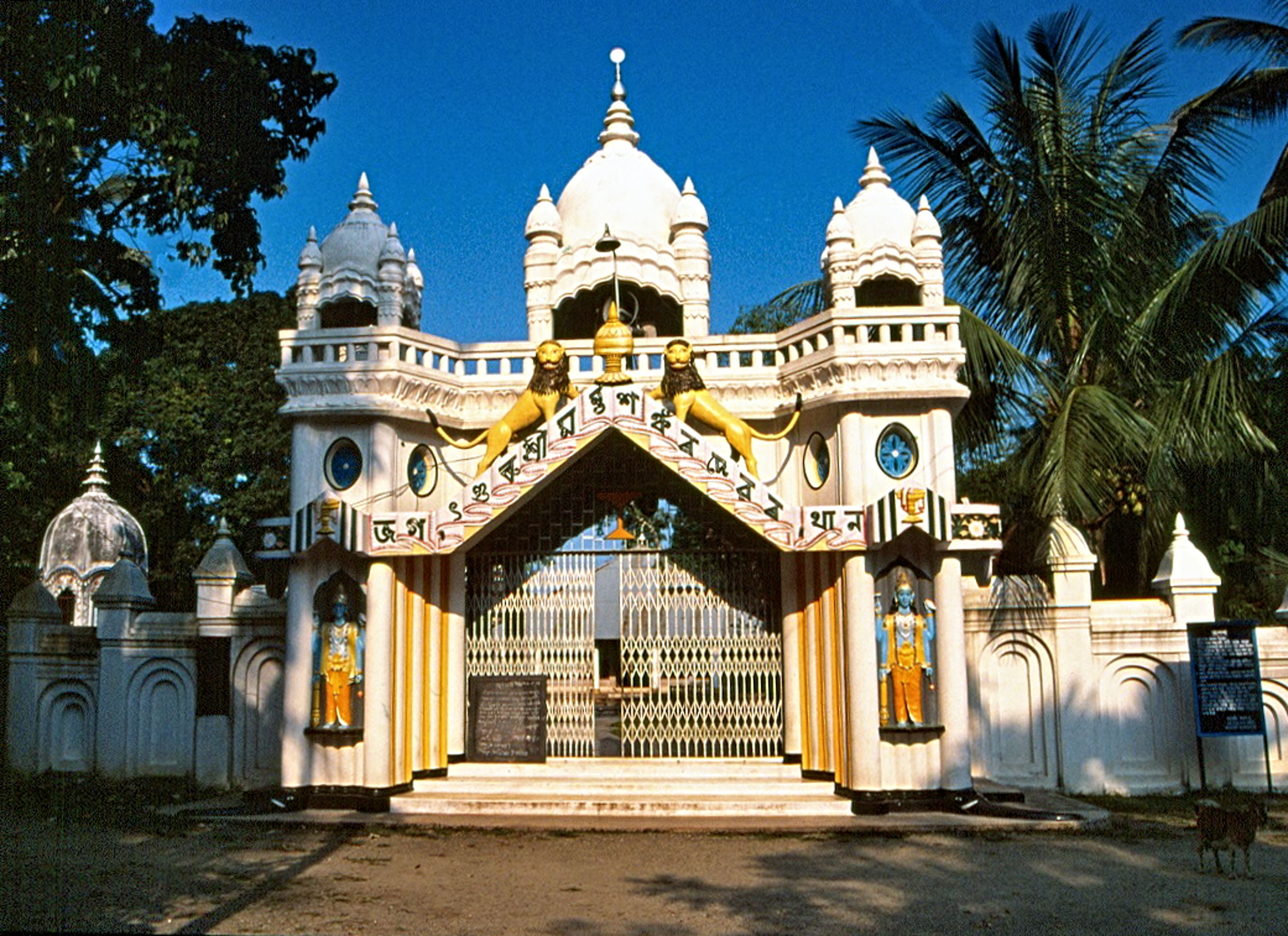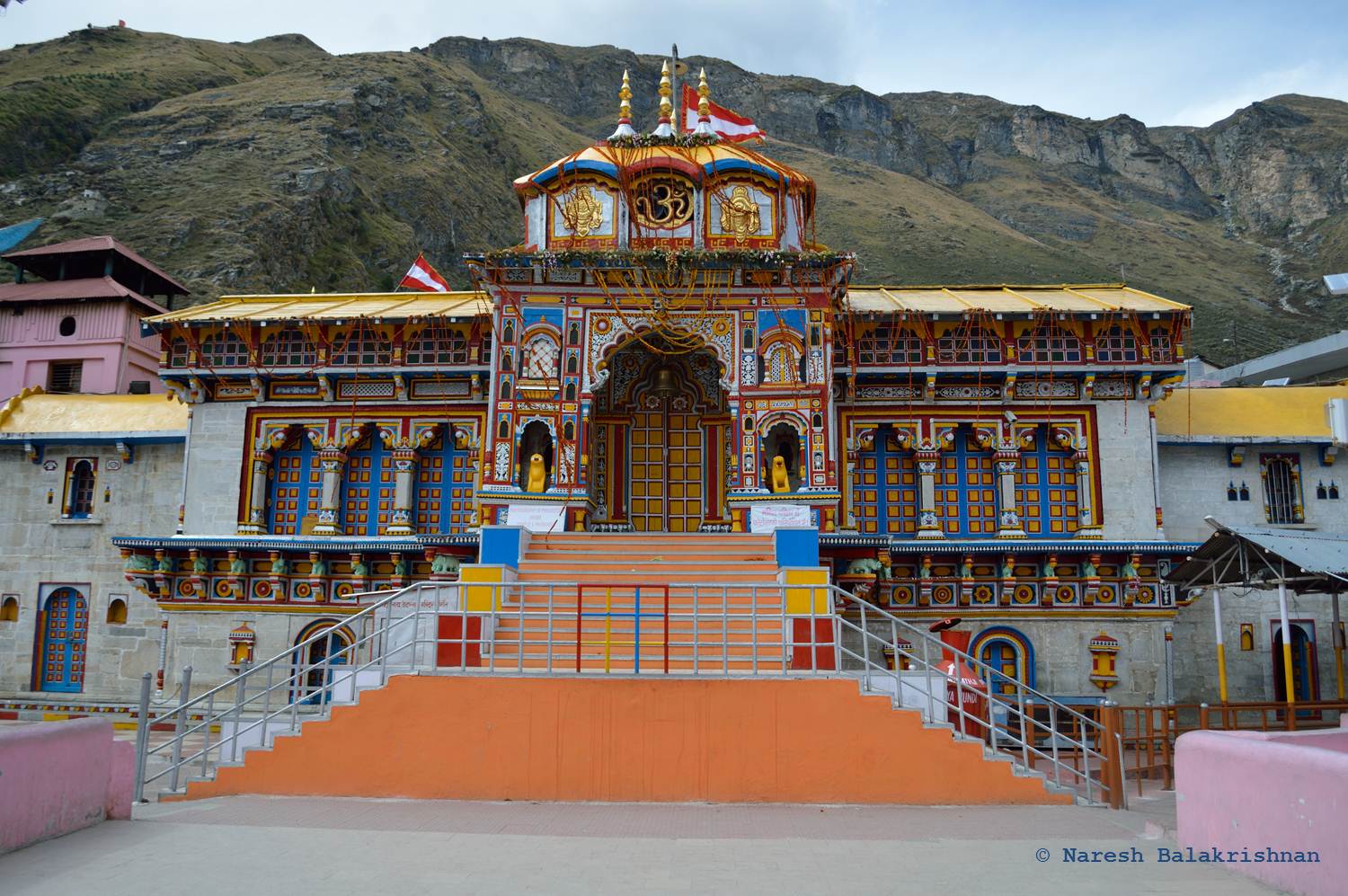|
Borgeet
Borgeets ( as, বৰগীত, lit=songs celestial, translit=Borgeet) are a collection of lyrical songs that are set to specific ragas but not necessarily to any tala (music), tala. These songs, composed by Srimanta Sankardeva and Madhavdeva in the 15th-16th centuries, are used to begin prayer services in Satra (Ekasarana Dharma), monasteries, e.g. Satra (Ekasarana Dharma), Satra and Namghar associated with the Ekasarana Dharma; and they also belong to the repertoire of Music of Meghalaya outside the religious context. They are a lyrical strain that express the religious sentiments of the poets reacting to different situations, and differ from other lyrics associated with the Ekasarana Dharma. Similar songs composed by others are not generally considered . The first Borgeet was composed by Srimanta Sankardeva during his first pilgrimage at Badrinath, Badrikashram in c1488, which is contemporaneous to the birth of Dhrupad in the court of Man Singh Tomar (1486-1518) of Gwalior. ... [...More Info...] [...Related Items...] OR: [Wikipedia] [Google] [Baidu] |
Sankardev
Srimanta Sankardev( শ্ৰীমন্ত শংকৰদেৱ )(; ; 1449–1568) was a 15th–16th century Assamese polymath; a saint-scholar, poet, playwright, dancer, actor, musician, artist social-religious reformer and a figure of importance in the cultural and religious history of Assam, India. He is widely credited with building on past cultural relics and devising new forms of music (Borgeet), theatrical performance ( Ankia Naat, Bhaona), dance ( Sattriya), literary language (Brajavali). Besides, he has left an extensive literary oeuvre of trans-created scriptures ( Bhagavat of Sankardev), poetry and theological works written in Sanskrit, Assamese and Brajavali. The Bhagavatic religious movement he started, Ekasarana Dharma and also called Neo-Vaishnavite movement, influenced two medieval kingdoms – Koch and the Ahom kingdom – and the assembly of devotees he initiated evolved over time into monastic centers called Sattras, which continue to be important soc ... [...More Info...] [...Related Items...] OR: [Wikipedia] [Google] [Baidu] |
Khol
The khol is a terracotta two-sided drum used in northern and eastern India for accompaniment with devotional music ('' bhakti''). It is also known as a mridanga (< + , ), not to be confused with ''''. It originates from the Indian states of , and . The drum is played with palms and fingers of both hands. Description The khol is regarded as resemb ...[...More Info...] [...Related Items...] OR: [Wikipedia] [Google] [Baidu] |
Devotional Song
A devotional song is a hymn that accompanies religious observances and rituals. Traditionally devotional music has been a part of Hindu music, Jewish music, Buddhist music, Islamic music and Christian music. Each major religion has its own tradition with devotional hymns. In Christianity, the devotional has been a part of the liturgy in Roman Catholicism, Lutheranism, the Greek Orthodox Church, the Russian Orthodox Church, and others, since their earliest days. A devotional is a part of the prayer service proper and is not, in these contexts, ornamentation. Within the Reformed tradition, church music in general was hotly debated; some Puritans objected to all ornament and sought to abolish choirs, hymns, and, inasmuch as liturgy itself was rejected, devotionals. In Eastern and Near-Eastern religions, devotionals can function as communion prayer and meditation. These are sung in particular rhythms which are sustained over a prolonged period to give practitioners a mystical ex ... [...More Info...] [...Related Items...] OR: [Wikipedia] [Google] [Baidu] |
Brajavali Dialect
Brajavali (Assamese: ''Brôzawôli'') was a literary language used by Sankardev (1449–1568) for some of his compositions ( Borgeets and Ankia Naats) in the context of his Vaishnavite religion, Ekasarana Dharma, in Assam. Though similar languages were used in the Vaishnavite contexts in Odisa and Bengal, the one used in Assam was different, as it was based on Maithili (and not Brajbhasa), to which Assamese is added and the native pronunciation overrides the original pronunciation of Maithili. In general, the vocables and idiomatic expressions of Brajavali were local (Assamese), while the inflectional forms were Maithili, easily understood by the people of Assam but carrying the flavor of Brajbhasa, the language of choice of the Bhakti ''Bhakti'' ( sa, भक्ति) literally means "attachment, participation, fondness for, homage, faith, love, devotion, worship, purity".See Monier-Williams, ''Sanskrit Dictionary'', 1899. It was originally used in Hinduism, ref ... [...More Info...] [...Related Items...] OR: [Wikipedia] [Google] [Baidu] |
Badrinath
Badrinath is a town and nagar panchayat in Chamoli district in the state of Uttarakhand, India. A Hindu holy place, it is one of the four sites in India's Char Dham pilgrimage and is also part of India's Chota Char Dham pilgrimage circuit. It gets its name from the Badrinath Temple. Etymology ''Badri'' refers to "Badrayana", another name for Rishi Ved Vyas who is believed to have resided in this region. It is also known as "Badarikashrama". History Badrinath was re-established as a major pilgrimage site by Adi Shankara in the 8th century. In earlier days, pilgrims used to walk hundreds of miles to visit the Badrinath temple. The temple has been repeatedly destroyed by earthquakes and avalanches. As late as the First World War, the town consisted only of the 20-odd huts used by the temple's staff, but the site drew thousands each year and up to 50,000 on its duodecennial festivals (every twelve years). In recent years its popularity has increased still more, with an ... [...More Info...] [...Related Items...] OR: [Wikipedia] [Google] [Baidu] |
Dhrupad
Dhrupad is a genre in Hindustani classical music from the Indian subcontinent. It is the oldest known style of major vocal styles associated with Hindustani classical music, Haveli Sangeet of Pushtimarg Sampraday and also related to the South Indian Carnatic tradition. It is a term of Sanskrit origin, derived from ''dhruva'' (ध्रुव, immovable, permanent) and ''pada'' (पद, verse). The roots of Dhrupad are ancient. It is discussed in the Hindu Sanskrit text '' Natyashastra'' (~200 BCE – 200 CE), and other ancient and medieval Sanskrit texts, such as chapter 33 of Book 10 in the ''Bhagavata Purana'' (~800–1000 CE), where the theories of music and devotional songs for Krishna are summarized. The term denotes both the verse form of the poetry and the style in which it is sung. It is spiritual, heroic, thoughtful, virtuous, embedding moral wisdom or solemn form of song-music combination. Thematic matter ranges from the religious and spiritual (mostly in praise of H ... [...More Info...] [...Related Items...] OR: [Wikipedia] [Google] [Baidu] |
Man Singh Tomar
Man Singh Tomar ( IAST: Mānasiṃha) was a Tomar Rajput ruler of Gwalior who ascended the throne in 1486 CE. History Maharaja Man Singh Tomar was born to Raja Kalyanmall, the Tomar Rajput ruler of Gwalior. He ruled for over 30 years. In his years the Tomar sometimes feuded with and were sometimes allies with the sultans of Delhi. Amongst other women, he married Mrignayani. Tomar built Gujari Mahal as a palace for her, as a monument of love for Mrignayani. Tradition has it that as a queen, Mrignayni, was very beautiful and courageous woman. She was not allowed to sit with other queens because of her lower caste, so she asked foe a separate palace for herself named (Gujari mahal). Tomar was a great warrior and great patron of music. One of the nine gems of his court was the Hindustani classical musician Tansen. He was patron of Dhrupad genre from Hindustani Classical Music. Tomar is credited to have defeated Sikander Lodi, who was Delhi Sultan at that time. Conflict w ... [...More Info...] [...Related Items...] OR: [Wikipedia] [Google] [Baidu] |
India
India, officially the Republic of India ( Hindi: ), is a country in South Asia. It is the seventh-largest country by area, the second-most populous country, and the most populous democracy in the world. Bounded by the Indian Ocean on the south, the Arabian Sea on the southwest, and the Bay of Bengal on the southeast, it shares land borders with Pakistan to the west; China, Nepal, and Bhutan to the north; and Bangladesh and Myanmar to the east. In the Indian Ocean, India is in the vicinity of Sri Lanka and the Maldives; its Andaman and Nicobar Islands share a maritime border with Thailand, Myanmar, and Indonesia. Modern humans arrived on the Indian subcontinent from Africa no later than 55,000 years ago., "Y-Chromosome and Mt-DNA data support the colonization of South Asia by modern humans originating in Africa. ... Coalescence dates for most non-European populations average to between 73–55 ka.", "Modern human beings—''Homo sapiens''—originated in Africa. Th ... [...More Info...] [...Related Items...] OR: [Wikipedia] [Google] [Baidu] |
Uttar Pradesh
Uttar Pradesh (; , 'Northern Province') is a state in northern India. With over 200 million inhabitants, it is the most populated state in India as well as the most populous country subdivision in the world. It was established in 1950 after India had become a republic. It was a successor to the United Provinces (UP) during the period of the Dominion of India (1947–1950), which in turn was a successor to the United Provinces (UP) established in 1935, and eventually of the United Provinces of Agra and Oudh established in 1902 during the British Raj. The state is divided into 18 divisions and 75 districts, with the state capital being Lucknow, and Prayagraj serving as the judicial capital. On 9 November 2000, a new state, Uttaranchal (now Uttarakhand), was created from Uttar Pradesh's western Himalayan hill region. The two major rivers of the state, the Ganges and its tributary Yamuna, meet at the Triveni Sangam in Prayagraj, a Hindu pilgrimage site. O ... [...More Info...] [...Related Items...] OR: [Wikipedia] [Google] [Baidu] |
Ekasarana Dharma
Ekasarana Dharma (literally: ''Shelter-in-One religion'') is a neo-Vaishnavite monolithic religion propagated by Srimanta Sankardeva in the 15th-16th century in the Indian state of Assam. It reduced focus on vedic ritualism and focuses on devotion (''bhakti'') to Krishna in the form of congregational listening (''sravan'') and singing his name and deeds (''kirtan''). The simple and accessible religion attracted already Hindu as well as non-Hindu populations into its egalitarian fold. The neophytes continue to be inducted into the faith via an initiation ceremony called ''xoron-lowa'' (literally: take-shelter), usually conducted by ''Sattradhikars'', heads of monastic institutions called Sattras, who generally draw apostolic lineage from Sankardev. Some Sattradhikars, especially those from the Brahma-sanghati, reject apostolic lineage from Sankardev due to an early schism with the order. Some modern reformation institutions conduct ''xoron-lowa'' outside the ''sattra'' ins ... [...More Info...] [...Related Items...] OR: [Wikipedia] [Google] [Baidu] |




